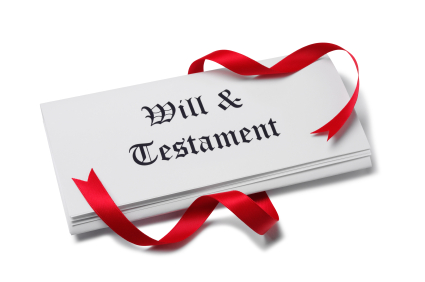
There is a reason why most of us don’t undertake dentistry or surgery upon ourselves, or build our own houses. It would most likely be much cheaper and certainly more convenient, however I would not be very confident of a successful outcome.
Likewise, you may consider not to use a professional Will Writer and that writing your own Will is the best and safest way to record your wishes, however DIY Wills are not always the best approach and can come with risks.
Here are some of the issues that could arise.
- You may own a business – do you know how your share of that business must be administered upon your death?
- You may have a large estate and not know how to be Inheritance Tax (IHT) efficient.
- You may exclude children from your Will and not know the true consequence of this decision one way or the other.
- Your Will may not be legally valid – was it witnessed and signed correctly?
- You have minor children but no guardian has been appointed to look after those children in the event of your death. Perhaps you have appointed more than one guardian, they live apart and this may cause confusion over where your minor children should live.
- Your appointed administrator (Executor) may be unable or unwilling to act to distribute your estate after your death.
- You may have a vulnerable child who lacks full mental capacity or has an addiction, and you may not be aware of how to protect an inheritance to serve their best interests.
- You may gift something in your Will which is unclear and could lead to conflict.
- You may ask a beneficiary to witness your Will when they are due to inherit under it, causing any gift to them to fail.
In a very recent High Court case where the issue of a DIY Will made headlines, Terri Tibbles was awarded her father’s entire estate at a value of £300,000.
Terri Tibbles was close to her father William. He was a car dealer and she expected to inherit his estate when he died in 2018 at the age of 75. William had made a Will in March 2017, and alongside his Will was a letter of wishes in which he stated Terri’s twin sister Kelly, along with his other daughters Cindy and Susan “had been a disappointment to him”. The same letter of wishes also referred to his son Paul being financially secure.
Three days after William’s death, a second Will was found which was written on a piece of paper that appeared to be torn from a notebook, and this was handed to his solicitors. This Will left his entire estate to be shared equally between Kelly, Susan, Cindy and Paul. Terri had been completely disinherited. Paul was named as the executor of the Will and when questioned, Paul maintained the Will was validly signed and witnessed the day before his father went into hospital. He also stated the other sisters had looked after his father during William’s final months, and that his father was determined to amend his existing Will.
The Will was challenged by Terri on the grounds that “it would have been totally uncharacteristic for him to prepare a DIY Will, considering his long history of previous dealings with solicitors. The document could just as well have been written and signed by anybody”.
Judge Marsh ruled in Terri’s favour on the grounds that following expert evidence, the handwriting was not that of William nor was the Will signed by him. There was also no evidence of it being written at William’s dictation nor any explanation as to why Terri was being disinherited.
The ruling was made last year but the Will has only now been admitted to probate.
There is no reliable substitute for professional advice. Only by seeking a professional practitioner to write your Will can you be sure your last wishes will be recorded correctly. Peace of mind is very important.
We provide a professional Will Writer Service without the high street price tag, please get in touch to find out more or call us on 01392 949003


 TRF Wills (TRF) was created by Michael Cotterill in 2005. He is a member of the Society of Will Writers and registered with the Information Commissioner’s Office.
TRF Wills (TRF) was created by Michael Cotterill in 2005. He is a member of the Society of Will Writers and registered with the Information Commissioner’s Office.